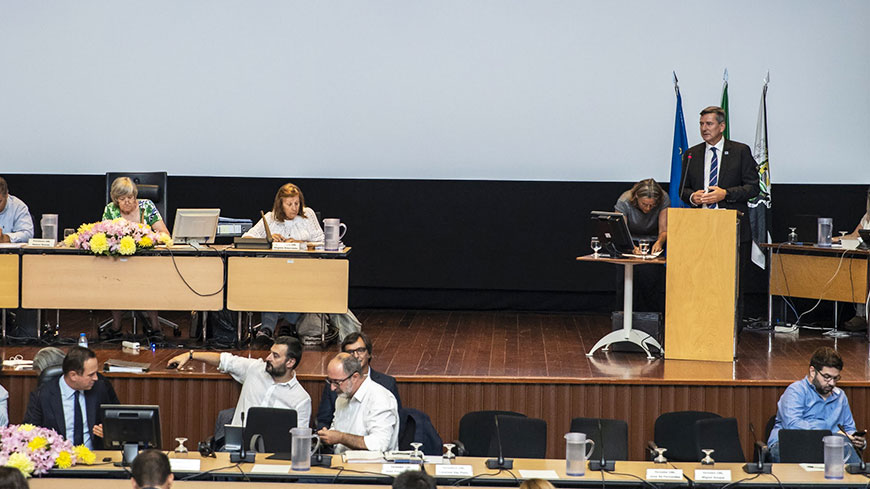On the occasion of a commemorative ceremony marking the 30th anniversary of the entry into force of the European Charter of Local Self-Government, Congress Secretary General Andreas KIEFER addressed the Lisbon City Council on 18 September 2018, Portugal. He also held discussions with Minister of Home Affairs Eduardo Cabrita, Mayor Fernando Medina of Lisbon, as well as representatives of the Portuguese association ANAFRE and members of the Portuguese delegation to the Congress.
"We are all beneficiaries of the Charter: as citizens, we enjoy civil liberties and are able to contribute to public life in our municipalities. And, as local politicians serving the people, you are the beneficiaries of the Charter when you exercise your political mandates," said Andreas KIEFER.
The Secretary General underlined that, through the monitoring of the Charter, the Congress’ recommendations serve as an early warning system for the Committee of Ministers of the Council of Europe with regard to developments in certain member states and possible risks to democracy. Among the recurring issues that emerged during the monitoring visits, he highlighted a broader trend towards recentralisation in Member States.
"This trend may take many forms, ranging from "legislative nationalism", as identified by the Secretary General of the Council of Europe, Thorbjørn Jagland, in his 2016 report on "the state of democracy, human rights and the rule of law", to the refusal of some courts to directly apply several Council of Europe conventions, including the European Charter of Local Self-Government, which we could call "judicial nationalism"," he added.
However, the Secretary General insisted on the significant progress noted by the Congress in the application of the Charter in almost all its monitoring reports. "The five-year rhythm of monitoring visits allows Member State governments and parliaments to initiate, implement and evaluate reform programmes and decentralisation strategies," he said.
"Our task as citizens and as politicians is to defend and protect the European Charter, which itself protects the rights of citizens and their elected representatives," concluded the Secretary General.
The European Charter of Local Self-Government entered into force on 1 September 1988. Countries that have ratified the Charter are bound by its provisions. The Charter requires respect for a minimum number of rights that constitute the first European basis of local self-government. The Congress of Local and Regional Authorities of the Council of Europe ensures that these principles are respected.




